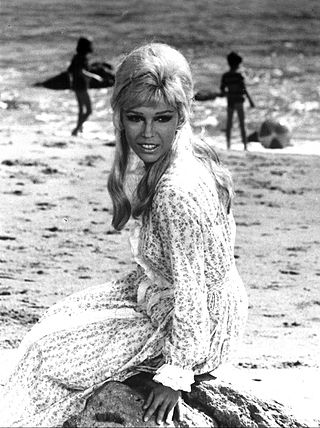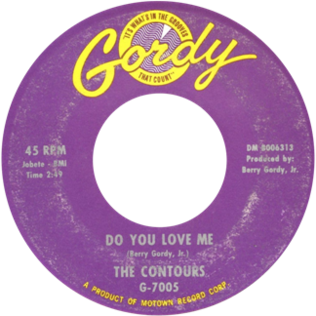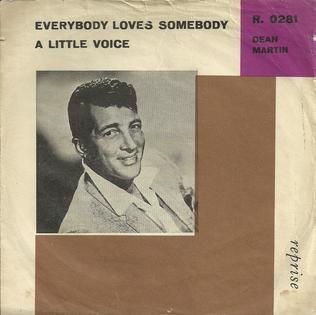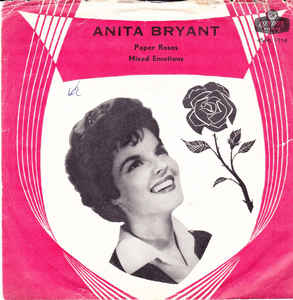Related Research Articles

Nancy Sandra Sinatra is an American singer. She is the elder daughter of Frank Sinatra and Nancy Sinatra and is known for her 1965 signature hit "These Boots Are Made for Walkin'".

"My Way" is a song popularized in 1969 by Frank Sinatra set to the music of the French song "Comme d'habitude" composed by Jacques Revaux with lyrics by Gilles Thibaut and Claude François and first performed in 1967 by Claude François.

Dance of the Hours is a short ballet and is the act 3 finale of the opera La Gioconda composed by Amilcare Ponchielli. It depicts the hours of the day through solo and ensemble dances. The opera was first performed in 1876 and was revised in 1880. Later performed on its own, the Dance of the Hours was at one time one of the best known and most frequently performed ballets. It became even more widely known after its inclusion in the 1940 Walt Disney animated film Fantasia where it is depicted as a comic ballet featuring ostriches, hippopotamuses, elephants and alligators.

"These Boots Are Made for Walkin'" is a hit song written by Lee Hazlewood and recorded by American singer Nancy Sinatra. It charted on January 22, 1966, and reached No. 1 in the United States Billboard Hot 100 and in the UK Singles Chart.
"Tammy" is a popular song with music by Jay Livingston and lyrics by Ray Evans. It was published in 1957 and made its debut in the film Tammy and the Bachelor. It was nominated for the 1957 Oscar for Best Original Song. "Tammy" is heard in the film in two versions. The one that became a number one hit single for Debbie Reynolds in 1957 is heard midway through the film, and was a UK No. 2 hit single in the same year. Another version was heard during the main titles at the beginning of the film and was a hit for the Ames Brothers. There have been several other cover versions of the song.

"Runaway" is a number-one Billboard Hot 100 song made famous by Del Shannon in 1961. It was written by Shannon and keyboardist Max Crook, and became a major international hit. It topped the Billboard charts for four consecutive weeks, and Billboard ranked it as the No. 5 song for 1961. It was No. 472 on the 2010 version of Rolling Stone's list of the 500 Greatest Songs of All Time and No. 466 on the 2004 version.

"A World Without Love" is a song recorded by the British duo Peter and Gordon and released as their first single in February 1964. It was included on the duo's debut album in the UK, and in the US on an album of the same name. The song was written by Paul McCartney and attributed to Lennon–McCartney. The B-side was "If I Were You", written by Peter and Gordon.

"I Will Follow Him" is a popular song that was first recorded in 1961 by Franck Pourcel, as an instrumental titled "Chariot". The song achieved its widest success when it was recorded by American singer Little Peggy March with English lyrics in 1963. The music was written by Franck Pourcel and Paul Mauriat. It was adapted by Arthur Altman. The completely new English lyrics were written by Norman Gimbel.
"Blue Velvet" is a popular song written and composed in 1950 by Bernie Wayne and Lee Morris. A top 20 hit for Tony Bennett in its original 1951 version, the song has since been re-recorded many times, with a 1963 version by Bobby Vinton reaching No. 1.

"Do You Love Me" is a rhythm and blues song recorded by the Contours in 1962. Written and produced by Motown Records owner Berry Gordy Jr., it appeared twice on the Billboard Hot 100 chart, reaching numbers three in 1962 and eleven in 1988.

"Everybody Loves Somebody" is a song written in 1947 by Irving Taylor and pianist Ken Lane, and made famous by Dean Martin who recorded and released his version in 1964.

"Paper Roses" is a popular song written and composed by Fred Spielman and Janice Torre. It first was a top five hit in 1960 for Anita Bryant. Marie Osmond recorded it in 1973 and took her version to number one on the US country chart.
"Wishin' and Hopin'" is a song, written by Hal David and Burt Bacharach, which was a US Top 10 hit for Dusty Springfield in 1964.

"The Night Has a Thousand Eyes" is a song written by Benjamin Weisman, Dorothy Wayne, and Marilyn Garrett. It became a popular hit in 1962 for Bobby Vee and has had several cover versions over the years.

"Just One Look" is a song co-written by American R&B singers Doris Troy and Gregory Carroll. The recording by Doris Troy was a hit in 1963. The Hollies, Anne Murray, Linda Ronstadt and Iain Matthews each achieved great success with the song. There have also been many other versions.

"Roses Are Red (My Love)" is a popular song composed by Al Byron and Paul Evans. It was recorded by Bobby Vinton, backed by Robert Mersey and his Orchestra, in New York City in February 1962, and released in April 1962, and the song was his first hit.
"There! I've Said It Again" is a popular song written and published by Redd Evans and David Mann in 1941. In early 1945, Vaughn Monroe and his Orchestra released Victor 20-1637, which reached the number one position on the Billboard's National Radio Airplay chart for five straight weeks, then no.2 for six more weeks, and a total run of 29 weeks. It finished 1945 as the no. 4 record of the year.

"So Sad (To Watch Good Love Go Bad)" is a song written by Don Everly, which was released by The Everly Brothers in 1960. The song was later a country hit for multiple artists in the 1970s and 80s.

"Little Town Flirt" is a song by Del Shannon, which was released as a single in 1962 from the album Little Town Flirt in 1963. It spent 14 weeks on the Billboard Hot 100 chart, peaking at No. 12, while reaching No. 1 on the Irish Singles Chart, No. 1 in Australia, No. 4 on the UK's Record Retailer chart, No. 7 on New Zealand's "Lever Hit Parade", and No. 9 on Canada's CHUM Hit Parade.
"He Understands Me" is a song released in 1963 by Teresa Brewer. The song was a hit single for Johnny Tillotson in 1964, retitled "She Understands Me", and Bobby Vinton in 1966, retitled "Dum-De-Da".
References
- ↑ Dave McAleer, "The Omnibus Book of British and American Hit Singles, 1960-1990", Omnibus Press, (1990) p. 59
- 1 2 "Hits of the World", Billboard , April 28, 1962. p. 22. Accessed October 28, 2015
- ↑ Nancy Sinatra - Like I Do, Dutch Charts. Retrieved October 28, 2015
- ↑ ”Hits of the World", Billboard , January 12, 1963. p. 28. Accessed October 28, 2015
- ↑ "Hits of the World", Billboard , March 31, 1962. p. 15. Accessed October 28, 2015
- ↑ Maureen Evans - Full Official Chart History, Official Charts Company . Accessed October 28, 2015
- 1 2 "Hits of the World", Billboard , March 9, 1963. p. 23. Accessed October 28, 2015
- ↑ "Lever Hit Parade" 14-Feb-1963, Flavour of New Zealand. Accessed February 19, 2016.
- 1 2 レモンのキッス, Utamap.com. Accessed October 29, 2015
- ↑ "Bubbling Under the Hot 100", Billboard , March 30, 1963. Accessed May 31, 2016.
- ↑ "Looking Ahead", Cash Box , March 30, 1963. p. 14. Retrieved February 25, 2018.